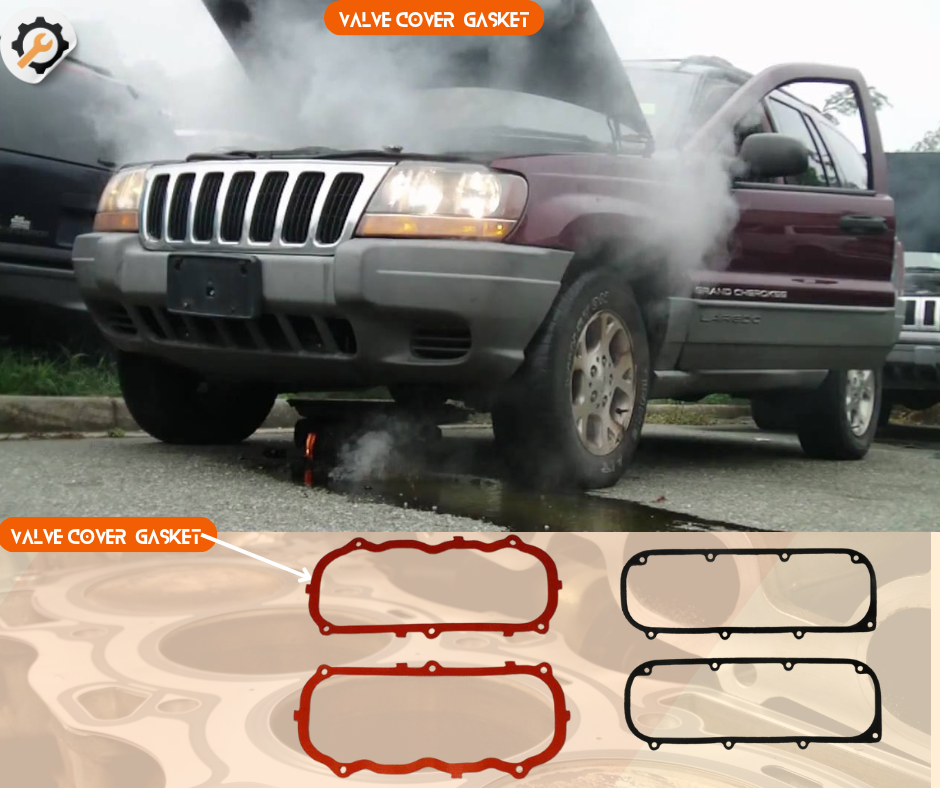Why Valve Cover Gaskets Deserve More Attention: The Small Seal That Protects Your Engine

Ever wonder why a little oil leak can turn into a massive headache for your engine? One of the most overlooked parts in your car's engine is the valve cover gasket, a small but mighty component that keeps your engine’s oil where it belongs. Over time, this gasket can wear down, and when it does, the problems begin.
Let’s explore why this small seal deserves your attention and how replacing it before it fails can save you from major engine troubles.
What Does a Valve Cover Gasket Do?
The valve cover gasket is a seal located between the engine’s valve cover and the cylinder head. Its job? To prevent oil from leaking out while protecting the engine from dirt and debris. As the engine runs, oil circulates to keep the moving parts lubricated, but if the gasket is compromised, oil can leak out, leading to engine damage over time.
Think of it as the engine’s barrier, keeping things clean, tight, and leak-free.
Why You Should Care About Your Valve Cover Gasket
Here’s why ignoring this small part can lead to bigger issues:
-
Prevent Oil Leaks: A worn-out valve cover gasket is one of the leading causes of oil leaks. As oil leaks out, it can drip onto hot engine parts, causing smoke, foul odors, and even the risk of a fire.
-
Protect Engine Components: Oil leaks can damage other engine components, especially electrical ones. When oil seeps into places it shouldn’t be—like spark plugs and wiring—it can cause misfires, poor performance, or even engine failure.
-
Avoid Costly Repairs: Replacing a valve cover gasket is relatively inexpensive compared to the damage that a serious oil leak can cause. Ignoring the problem might result in oil starvation, which can wreck your engine and lead to costly repairs or even a full engine replacement.
Signs of a Failing Valve Cover Gasket
How do you know if your valve cover gasket is on its way out? Here are some signs to watch for:
- Visible Oil Leaks: If you notice oil pooling under your car or see oil stains around the valve cover, it’s a sure sign that the gasket is failing.
- Burning Oil Smell: Leaking oil can drip onto hot engine parts, creating a distinctive burning smell.
- Engine Misfires: Oil leaks can cause your spark plugs to foul, leading to misfires, rough idling, or reduced engine performance.
- Low Oil Levels: If your oil is consistently low despite regular top-ups, it’s worth checking the valve cover gasket for leaks.
The Long-Term Risks of Ignoring a Valve Cover Gasket Leak
Failing to replace a worn valve cover gasket doesn’t just lead to oil leaks—it can cause long-term damage to your engine. As oil levels drop, your engine becomes less lubricated, leading to increased friction between components. This wear and tear can result in overheating, engine knocking, and even complete engine failure.
In short, ignoring a valve cover gasket leak is like gambling with your engine’s health. It’s a small problem that can snowball into a major disaster if left untreated.
When to Replace Your Valve Cover Gasket
Valve cover gaskets don’t last forever, and over time, heat, oil, and pressure can cause them to crack or break down. If you spot any of the signs mentioned earlier, it’s time to replace the gasket.
Routine maintenance and regular oil checks can help you catch issues before they escalate. If you’ve never had your valve cover gasket checked, now might be the perfect time.
Get Expert Help at Sparesworld
At Sparesworld, we know how important it is to stay on top of the little things that keep your engine running smoothly. Whether you need a new valve cover gasket or help diagnosing an oil leak, our team is here to assist you with the parts and expertise to get the job done right.
Don't let a worn valve cover gasket be the reason your engine suffers—take action today and keep your car running at its best!

 Loading..
Loading..